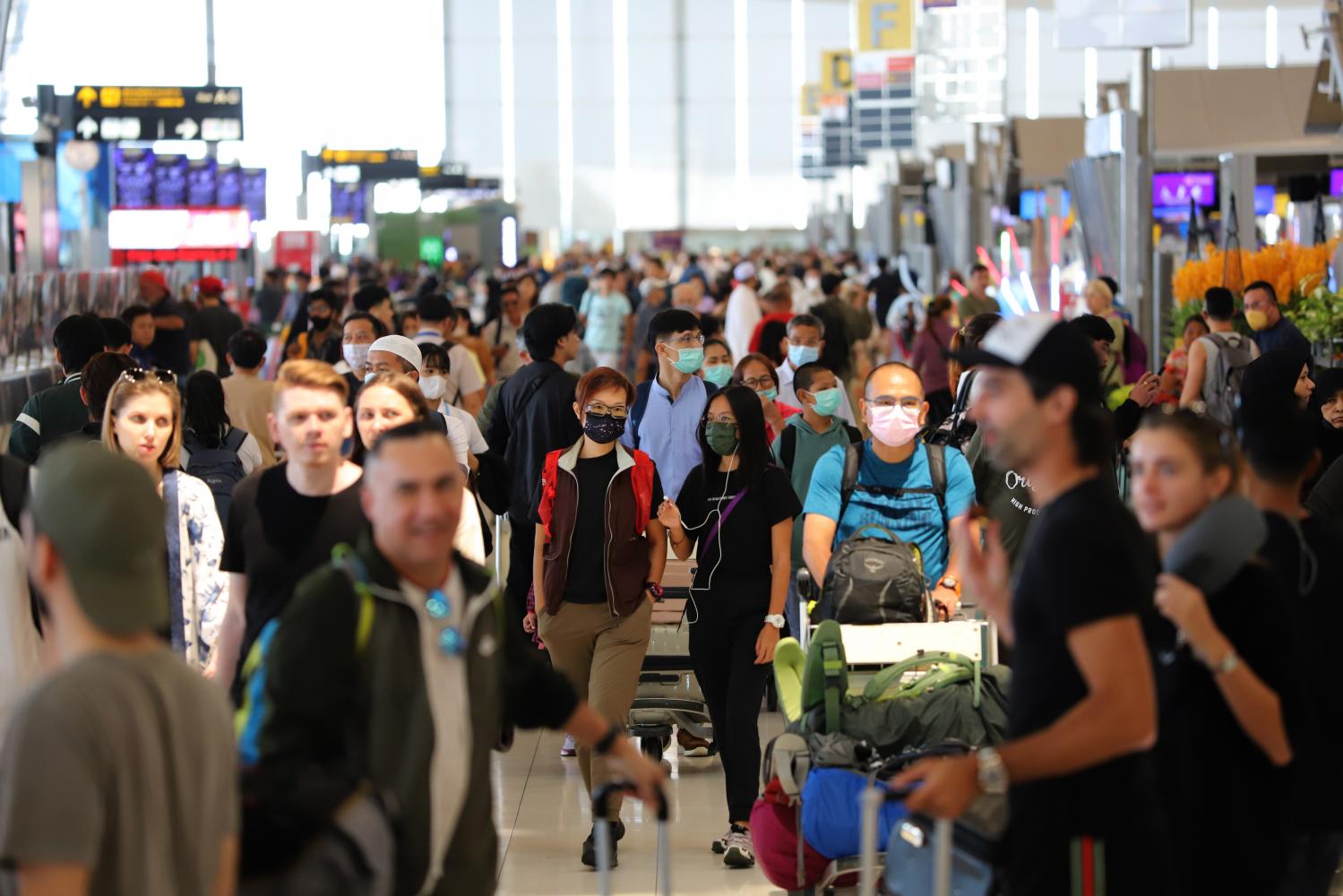
Thai outbound travellers and foreign permanent residents in Thailand have been asked for their opinion on a government departure tax of 1,000 baht in an attempt to prevent locals from spending excessively abroad, with the Revenue Department announcing online public hearings this week.
The department posted the public hearing questionnaire on its website, saying it wants to listen to public opinion about an emergency decree on a departure levy, based on a law passed in 1983, in order to assess its impact.
The hearings have been scheduled for May 3-17.
According to the questionnaire, Thai citizens and foreign permanent residents would be required to pay a departure tax of 1,000 baht for air travel and 500 baht for land and sea travel.
The information attached to the poll said the tax aimed to generate revenue for the government and prevent Thais from excessive overseas spending, with a focus on reducing the trade deficit.
Charoen Wangananont, president of the Thai Travel Agents Association (TTAA), said the questionnaire came as a surprise when it was posted earlier this week, even though the public hearing process meant it was supposed to be shared as widely as possible to assess the impact on local residents and tour operators.
"The principle and the levy rate make no sense at all, as Thailand has never had a problem related to a trade deficit in tourism, with inbound income making up 70% of the total, compared with 30% outbound expenditure. In addition, 1,000 baht is too expensive amid current economic conditions," said Mr Charoen.
He said the levy collection should not happen and is unrealistic. If the government wanted to propose such a tax, it should carefully assess the consequences because it could have a major effect on tourism, exceeding whatever revenue the state estimates it could earn, said Mr Charoen.
"We thought this was fake news the first time we saw the poll because it is not the right time to do such a move. If the government really thinks it needs to collect a departure tax, it should have done so before the pandemic, when the tourism industry was on an upward trend. The levy rate should also be more appropriate," he said.
Chotechuang Soorangura, vice-president of TTAA, said a development plan should be included with any departure tax so the people who pay it are aware of how the government will spend the revenue.
He said while some countries apply a departure tax, such as Japan, the price is only ¥1,000 per person, or around 250 baht.
"In addition to being a very expensive tax rate, there is a lack of transparency as the government could not clarify how it will use that money, which would help prevent corruption. Another concern is the 300-baht tourist tax expected to be charged to foreigners in the near future," said Mr Chotechuang.
He said if this levy is implemented, the tourism industry would be affected as a number of outbound tourists would refrain from travel, resulting in imbalanced flows of people, causing difficulties for airlines planning flights to Thailand.







